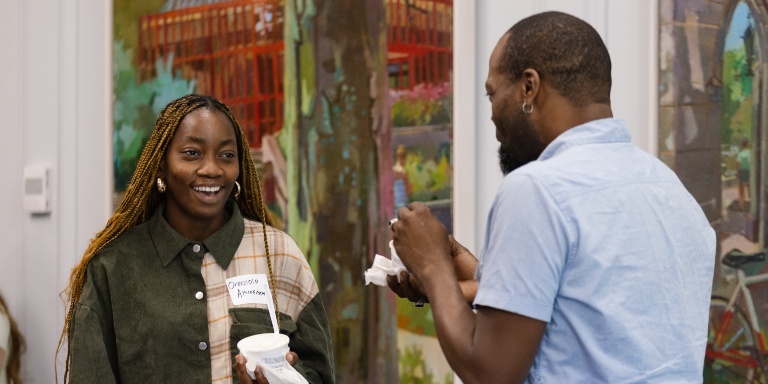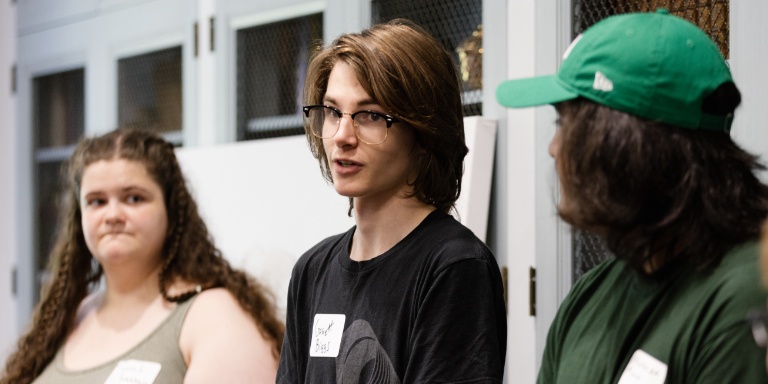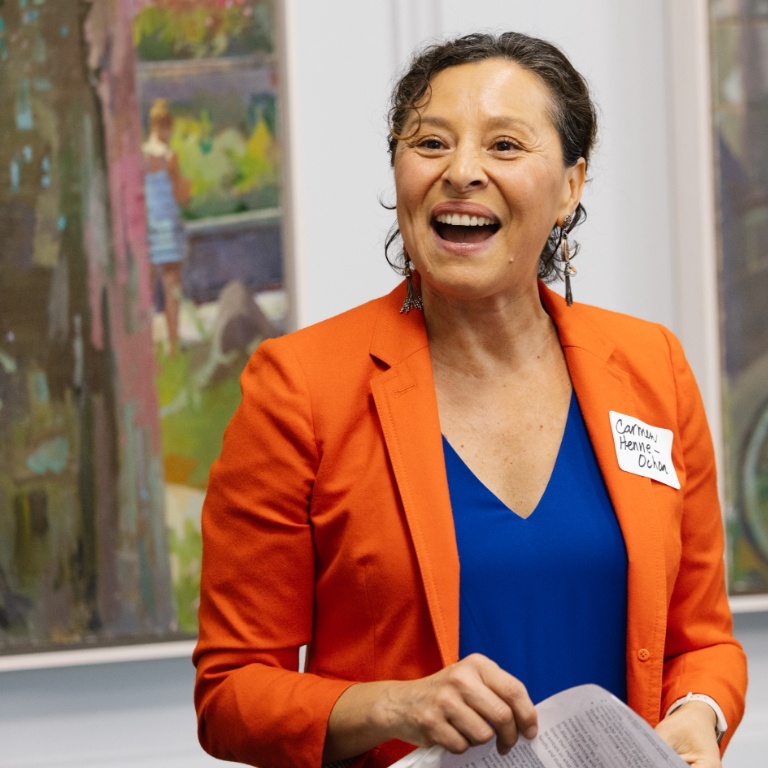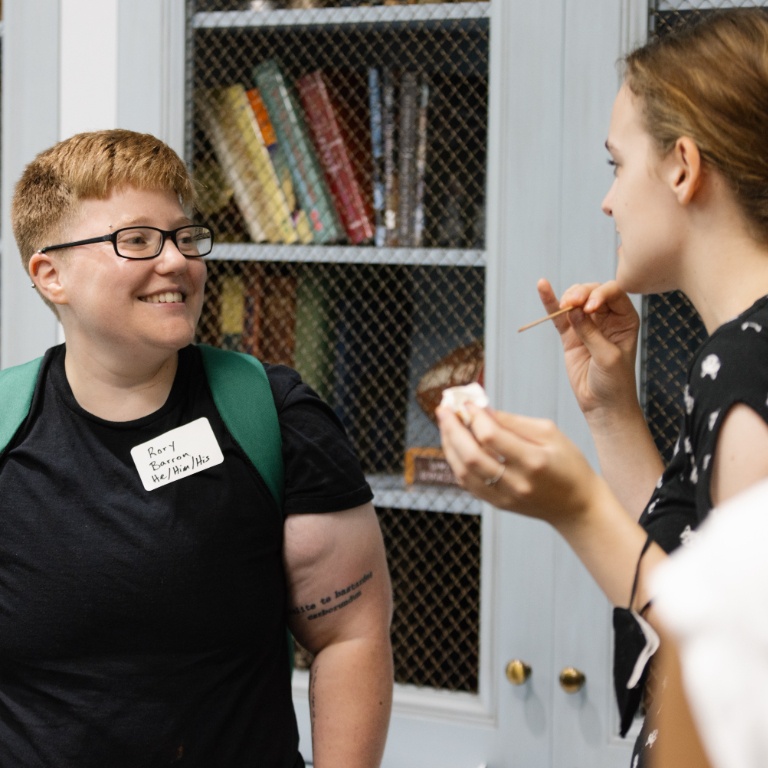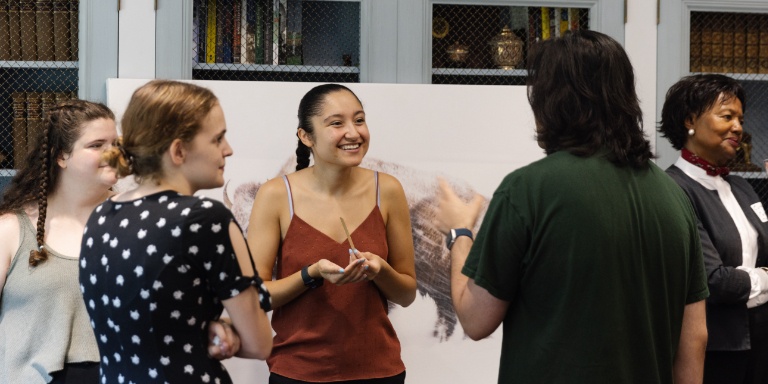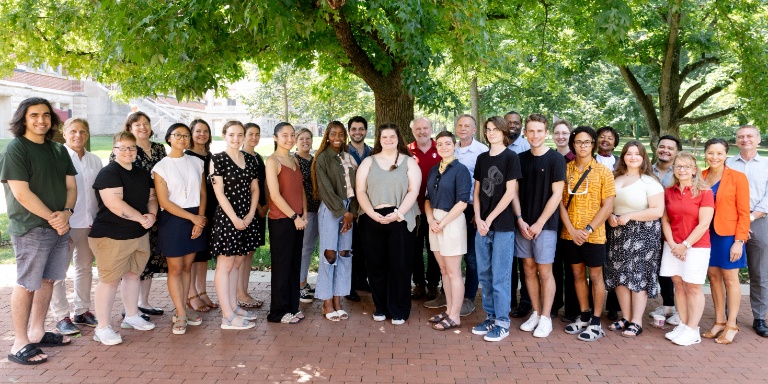
Salem State visit
The Office of Diversity and Inclusion was honored to be invited to visit with and present to students, faculty, staff, and administrators at Salem State University (SSU).
Read moreThe Kovener Teaching Fellows Program—named in honor of donors Gary and Sharon Kovener—was launched in 2019 with the objective of supporting excellence in teaching. Its creation has enabled the College to address issues of inclusive pedagogy – critically, experientially, and in applied format.
Uniquely, this program brings together twenty student and faculty fellows for dialogue, exploration, and mentorship in a five-person pod that includes two undergraduate students, a graduate student, and a senior and a junior faculty member. Through a carefully designed set of readings, dialogues, and pedagogical exercises, Kovener Fellows explore how best to make College classrooms inclusive spaces where all students—regardless of their identity or background—can participate fully in the learning process.
Some interrelated questions fellows address include: How do we support all students’ engagement with subject material? How do we situate learning within students’ own contexts while exploring those contexts? With the goal of motivating students to take control of their learning, how do we recognize them, ensure their voices are heard, draw relevant connections to their lives, and respond to their concerns?
Now in our 5th year of the program, together, faculty and student fellows will continue to practice a mixture of intrapersonal and interpersonal teacher/learner awareness; cultivate their knowledge of inclusive practices; and adopt and implement student-centered pedagogies.
For more information, or if you are interested in becoming a Kovener fellow, please contact Carmen Henne-Ochoa at ochoac@iu.edu.
In March 2021, six Kovener fellows presented at the American Association of Colleges and Universities Conference on Diversity, Equity, and Student Success.
Read more about the conference

The Office of Diversity and Inclusion was honored to be invited to visit with and present to students, faculty, staff, and administrators at Salem State University (SSU).
Read more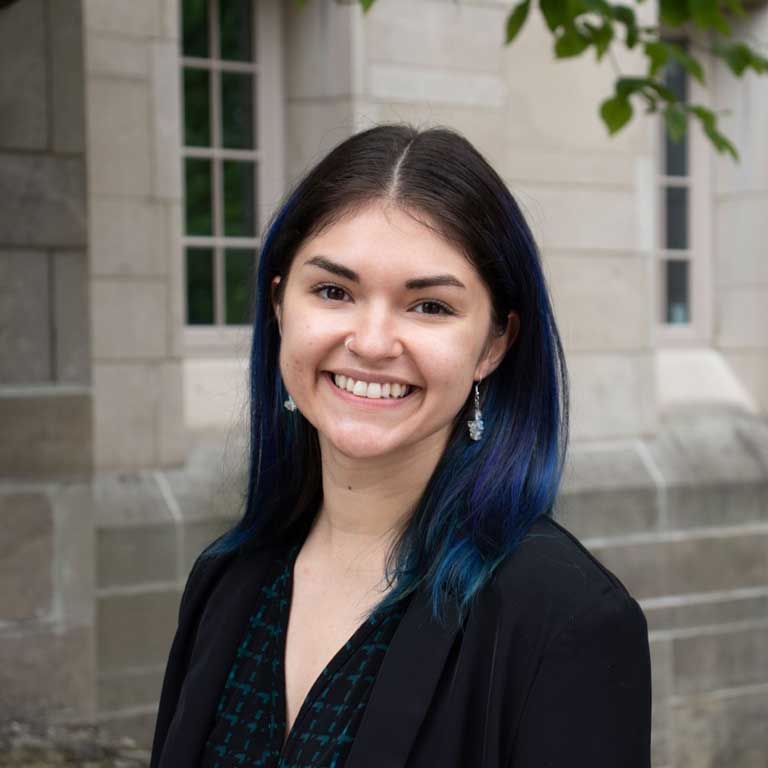
Ayla served as a Kovener Fellow in the College of Arts and Sciences Kovener Teaching Fellows Program. In 2021, Ayla was the recipient of a Kate Hevner Mueller Award.
Read more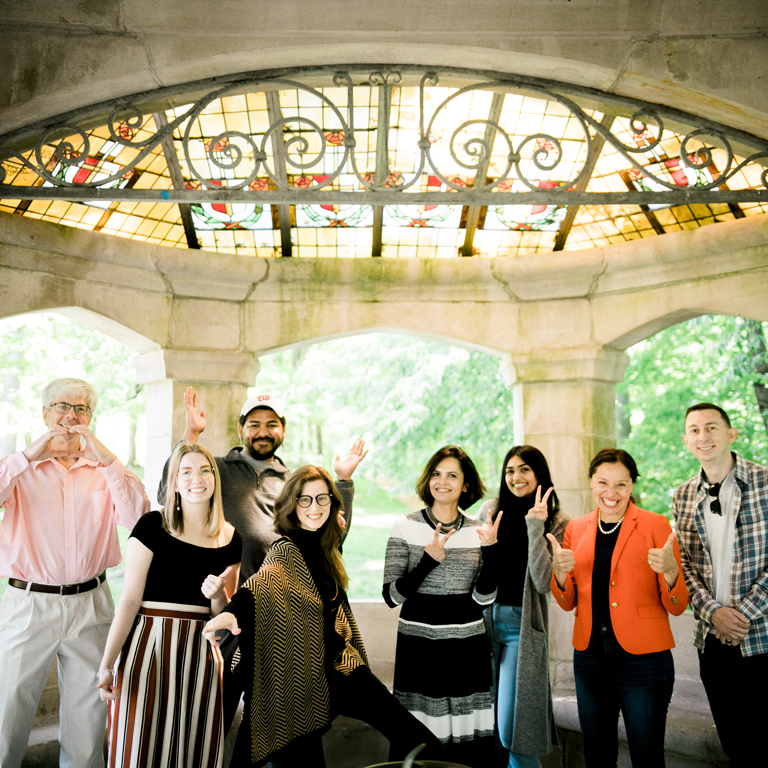
Working hand in hand, a group of faculty and students in the College known as the Kovener Fellows are designing new strategies to make classrooms more welcoming and supportive for all students.
Read more